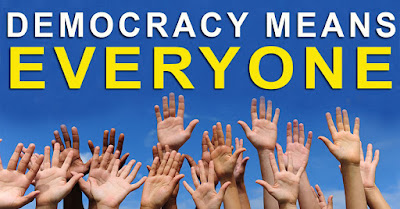"Democracy is one of the most important principles for a better world. In its truest sense, a democracy is a community in which all members have an equal say in the running of that community. Unfortunately in reality, democratic societies have fallen short of this ideal. Nevertheless, because of its very nature, once a democracy is established, its citizens can work together to make their society more and more democratic, if they choose to do so." – Robert Alan Silverstein
POLITICAL CORRUPTION
There is an increase disenchantment of the state of society in our globalized world. In a study about democratic participation in different countries in the globe, 44 out of 47 countries that took part in the study asserted that the conditions of a good society were not met (Barry Knight: 2002, p. 107)
Undemocratic practices breed social ills that haunt societies in the planet. Dissatisfaction of citizens with their governments include: a. failure to meet their basic needs that create profound insecurities,b. failure to protect them from the sweeping winds of economic change where they lose their customs and traditions, andc. failure to involve its citizens in its policies and programs.
Basic Needs
Failure to meet basic needs is a common complaint among many societies in the world today. There was a growing gulf between rich and poor droving the former to extra-legal activities such as theft and prostitution.
Association
Undemocratic practices undermine the traditional bonds of family and kinship threatened by the pressures of work, urbanization and migration. The distancing of government concerns from the lives of ordinary people weakened customary forms of accountability and led to a highly corrupt, self-seeking, inefficient, and partisan state.
Participation
Citizens play they part by (1) engaging in collective action to perform voluntary work with others in order to tackle problems and (2) participating in political processes to play an active role in relation to the state in order to ensure that the state opened itself up to the influence of citizens.

Thank you
ReplyDelete